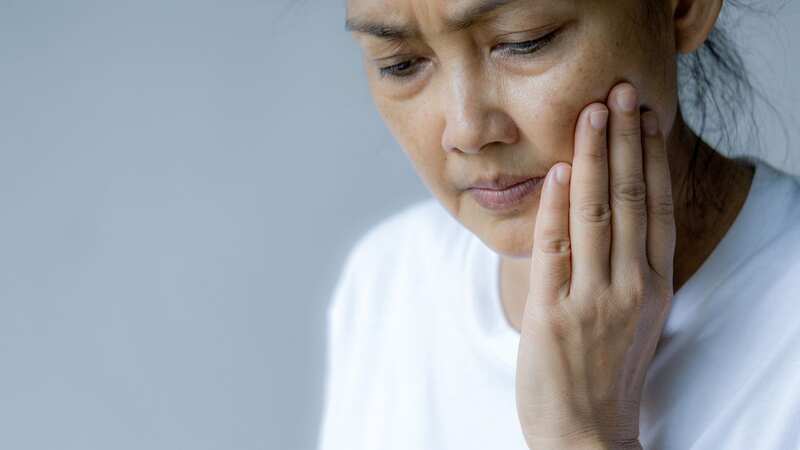Little-known change to your teeth could be warning sign for menopause

Menopause isn't just hot flushes and mood swings - and can actually have serious affects on your teeth and gums.
Recent research found that one in 10 women who worked during the menopause have left their jobs due to their symptoms. Therefore, the Equality and Human Rights Commission (EHRC) are now warning that bosses could be sued if they don't make 'reasonable adjustments'.
Recommendations include consideration for room temperature and ventilation for those struggling with hot flushes, flexible working (such as working from home) and relaxed uniform policies. But the impact of menopause on women's oral health has still been overlooked.
Menopause occurs when your periods stop due to lower hormone levels. It most commonly affects women between the age of 45-55 but it can occur earlier in life. It can happen naturally or be a result of invasive surgery such as removing the ovaries or cancer treatments. Perimenopause is used to describe the symptoms of menopause in a person who is still menstruating.
According to the NHS, both of these stages can cause sensitive teeth and painful gums. These symptoms can last for months or even years - and are caused by the decrease levels in oestrogen and progesterone hormones which can affect bone density and cause dry mouth. If you're experiencing pain or discomfort when eating hot or cold foods, or have bleeding gums - it's important to see a dentist.
 Teachers, civil servants and train drivers walk out in biggest strike in decade
Teachers, civil servants and train drivers walk out in biggest strike in decade
A 2021 study published in PubMed found the menopause can result in an increased risk of tooth decay and periodontal disease due to changes in saliva secretion and consistency. It concluded: "Due to the large variety of complaints and symptoms occurring in the oral cavity, menopausal women constitute a significant group of patients who should receive special preventive and therapeutic care from doctors and dentists in this particular period."
Want the latest health news and fitness tips sent straight to your inbox? Sign up to our
Menopause can also have an effect on your mental health, and may present itself with noticeable changes to the mood, anxiety, low self-esteem and problems with memory or concentration (otherwise known as brain fog). Other physical symptoms to look out for include:
- Hot flushes
- Difficulty sleeping - commonly a result of night sweats
- Palpitations
- Headaches/ migraines that are worse than usual
- Muscle aches/ Join pains
- Reduced sex drive
- Recurrent urinary tract infections (UTIs)
- Skin changes (such as dry, itchy skin)
- Vaginal dryness and pain
- Itching/ discomfort during sex
- Mouth problems
If you think you have perimenopause or menopause symptoms, it is recommended to speak to a nurse or GP. A pharmacist may also be able to help you with treatments, such as over-the-counter medication.
Read more similar news:
Comments:
comments powered by Disqus

































